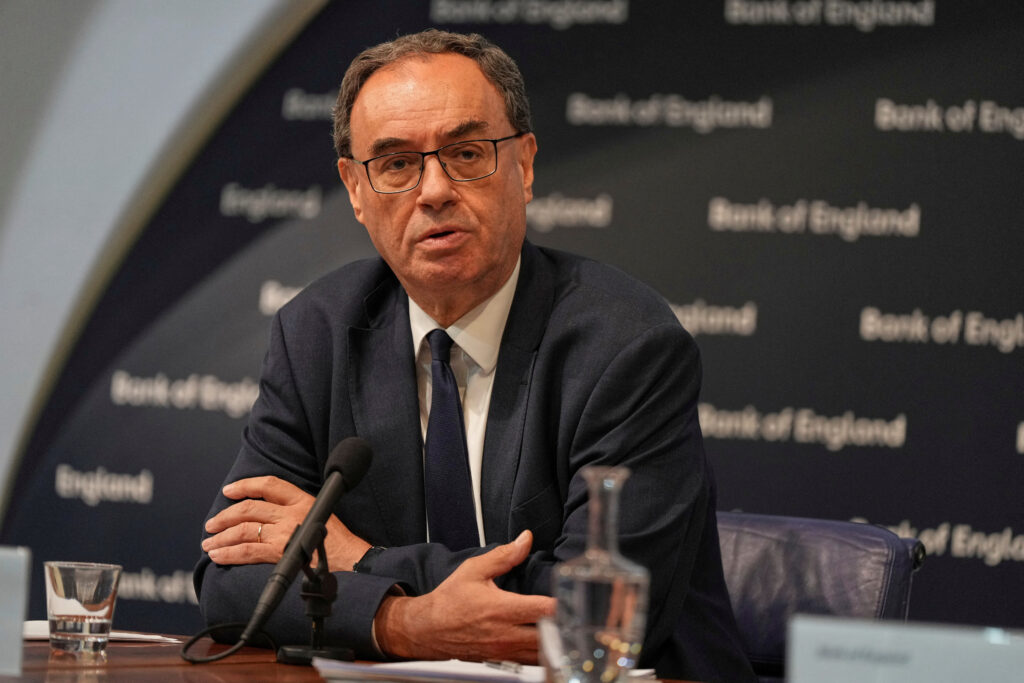

Durrant Pate/ Contributor
The Bank of England (BoE) was split over Thursday’s decision on interest rates, choosing not to cut borrowing costs by 7 votes to 2.
The BoE’s nine-member monetary policy committee (MPC) voted in a majority to leave borrowing costs unchanged, after five cuts since summer 2024, including a reduction last month. The MPC had been widely expected to pause rate cuts this month as annual inflation remained at 3.8% in August, nearly double the target level.
The BoE decided to hold interest rates at 4% and to slow the pace of its “quantitative tightening” programme in the year ahead to avoid distorting jittery bond markets that set the cost of government debt.
Casting of votes
BoE Governor Andrew Bailey and his deputies Sarah Breeden, Clare Lombardelli and Dave Ramsden; chief economist, Huw Pill and external members, Megan Greene and Catherine Mann, all voted to leave rates on hold at 4%. However, the other two external members, Swati Dhingra and Alan Taylor, voted to reduce Bank Rate by 0.25 percentage points, to 3.75%.
Last month, Taylor had initially pushed for a half-point cut, to 3.75%, before voting for a quarter-point cut at an unprecedented second vote after the MPC was split 4-4-1, while Dhingra has been the most dovish member of the committee in the last few years.
Today’s announcement was widely anticipated by markets, as policymakers have been balancing the risks of rising inflation, caused in part by a jump in food prices against a continuing slowdown in the jobs market with unemployment at a four-year high. In the minutes of today’s meeting, the MPC said its own estimates showed employment growth at zero, which it said was “partly attributable to the impact of increases in employers’ national insurance contributions (NICs)”.
Quantitative tightening employed
Governor, Bailey announced that the Bank would slow the pace of reductions to its balance sheet through quantitative tightening (QT), which involves selling off the bonds the Bank accumulated through the emergency policy of quantitative easing (QE) after the 2008 financial crisis. Threadneedle Street has come under pressure to moderate QT amid volatile yields – effectively the interest rate – on government bonds, known as gilts.
The Bank has acknowledged that QT has put some upward pressure on gilt yields, which affect the cost of borrowing for the Treasury, and critics have accused it of distorting fragile bond markets. Given the gilts are now being sold at a loss, the policy also has an impact on the public finances.
In the past year the Bank has been aiming to reduce its stock of government bonds by £100 billion This has involved selling off gilts as well as retiring others when they reach maturity.
Bailey commented, “although we expect inflation to return to our 2% target, we’re not out of the woods yet so any future cuts will need to be made gradually and carefully” noting, “today we reduced the size of our annual QT target from £100bn to £70bn. The new target means the MPC can continue to reduce the size of the Bank’s balance sheet in line with its monetary policy objectives while continuing to minimize the impact on gilt market conditions.”
However, with fewer bonds in the Bank’s portfolio set to mature in the next 12 months, the pace of Bank bond sales will actually increase, to about £20bn, from £13bn in the current year. Rising interest costs on government debt is one of the factors likely to put Chancellor of the Exchequer, Rachel Reeves on course to break her fiscal rules, in forecasts from the Office for Budget Responsibility (OBR) before the November 26 budget.
As well as reducing the overall target for QT, the BoE says it would shift the balance of bond sales towards shorter-term gilts. The OBR recently warned that the decline in defined-benefit pensions had undermined demand for the longest-dated government bonds.







Comments